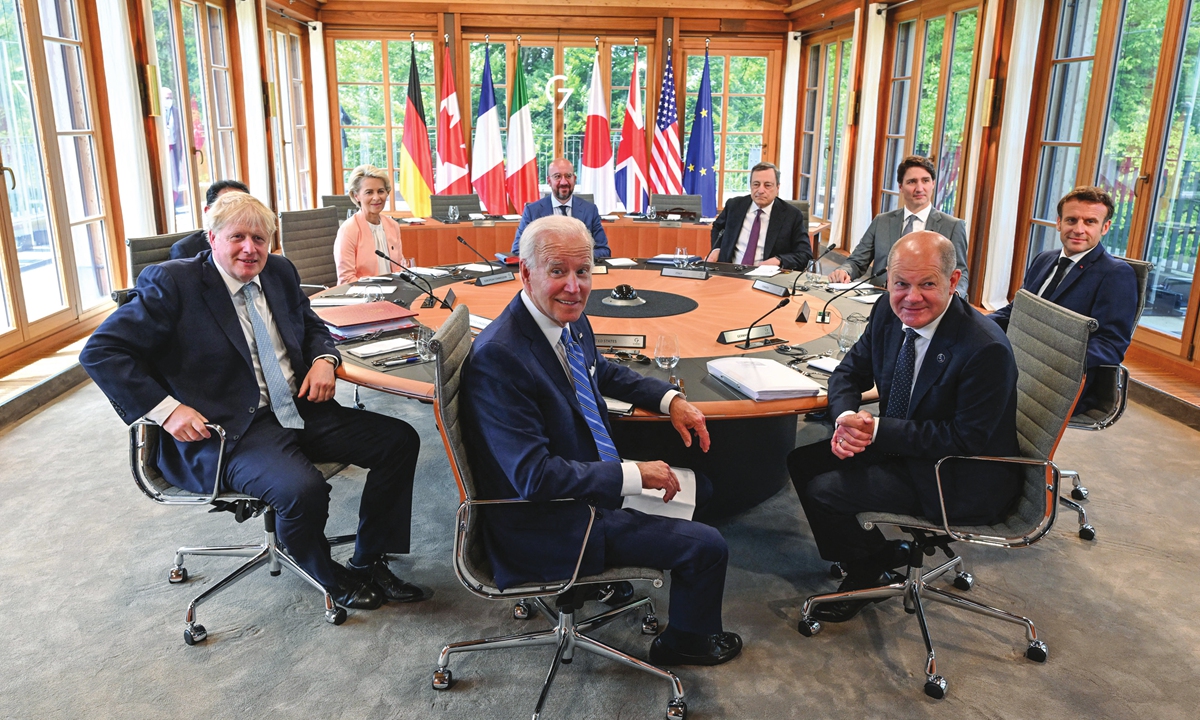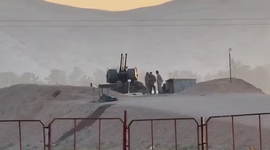Leaders of the world’s seven advanced economies are gearing up to expand sanctions targeting Russia’s defense industry in a bid to hinder its ability to import technologies for its arms industry.
The plan was revealed in a statement issued by the White House as the leaders of G7, including Canada, France, Germany, Italy, Japan, the United Kingdom, and the United States, met in Munich as part of the three-day summit.
“G7 Leaders will align and expand targeted sanctions to further restrict Russia’s access to key industrial inputs, services, and technologies produced by our economies, particularly those supporting Russia’s armament industrial base and technology sector,” the statement reads.
The measures are not just about preventing Moscow from getting advanced weaponry but about causing severe harm to its economy.
“The effectiveness of our measures will only compound over time to further isolate Russia from the world economy,” the White House said.
According to the statement, US exports to Russia have so far decreased by approximately 97 percent over a few months. It is expected that Russia’s imports of goods from around the world could fall by 40 percent while GDP - decline by double digits. Washington claims that factories across Russia are struggling to maintain production.
The leaders of the Group of Seven have also pledged to ban imports of Russian gold to hit Moscow’s ability to fund the war in Ukraine.
One of the strongest supporters of Ukraine, UK Prime Minister Boris Johnson, believes that the move will “directly hit Russian oligarchs and strike at the heart of Putin’s war machine.”
Gold has topped Russian export (after energy) in recent years, reaching almost $19 billion (€18bn) or about five percent of global gold exports in 2020, 90 percent of which was sent to G7 countries, according to the White House.
Under the new package of sanctions, the G7 also plans to strip Russia of its “most favored nation” trading status, which guaranteed low tariff rates for Russian goods sold globally. Amid Congress’s revocation of Russia’s trade status in the US, Washington will implement a higher tariff rate on more than 570 groups of Russian products worth approximately $2.3 billion to Russia.
“These measures will restrict Russia’s ability to benefit economically from sales to the US market and are carefully calibrated to impose costs on Russia while minimizing costs to US consumers,” the White House said.
Before the G7 summit in Germany, the White House announced that Russia had defaulted on its foreign sovereign bonds for the first time in decades. Moscow, however, rejected this claim.
On February 24, Russia launched an all-out offensive in Ukraine, claiming that the assault was aimed to protect the people of the separatist-controlled regions in Ukraine, allegedly being subjected to abuse by the Ukrainian military. The Kremlin explained that the decision was made after separatist leaders of the so-called Donetsk and Luhansk People’s Republics had asked Moscow for military support against Kyiv. In his televised address, Russian President Vladimir Putin told foreign countries not to interfere, saying that it could lead to “consequences they have never seen.”
In response to Russia’s move, Western countries have rolled out a comprehensive sanctions campaign against Moscow and started supplying weapons to Ukraine. For some countries, such as Germany and Finland, the war in Ukraine significantly reversed their previous defense policies that barred exporting weapons into war zones.
Russian authorities have repeatedly criticized western nations for their military assistance to Ukraine, arguing that the aid is not only fueling the conflict but also boosting the risk of direct confrontation between Russia and NATO powers.







 Russian peacekeeping forces, deployed in the Karabakh (Garabagh) region of Azerbaijan since 2020, have commenced their withdrawal from the area.
Russian peacekeeping forces, deployed in the Karabakh (Garabagh) region of Azerbaijan since 2020, have commenced their withdrawal from the area.
 Azerbaijan officially unveiled the logo for the upcoming 29th session of the Conference of the Parties to the United Nations Framework Convention o...
Azerbaijan officially unveiled the logo for the upcoming 29th session of the Conference of the Parties to the United Nations Framework Convention o...
 The Kazakh authorities have increased their arbitration claims against international oil companies involved in the development of the Kashagan oil ...
The Kazakh authorities have increased their arbitration claims against international oil companies involved in the development of the Kashagan oil ...



